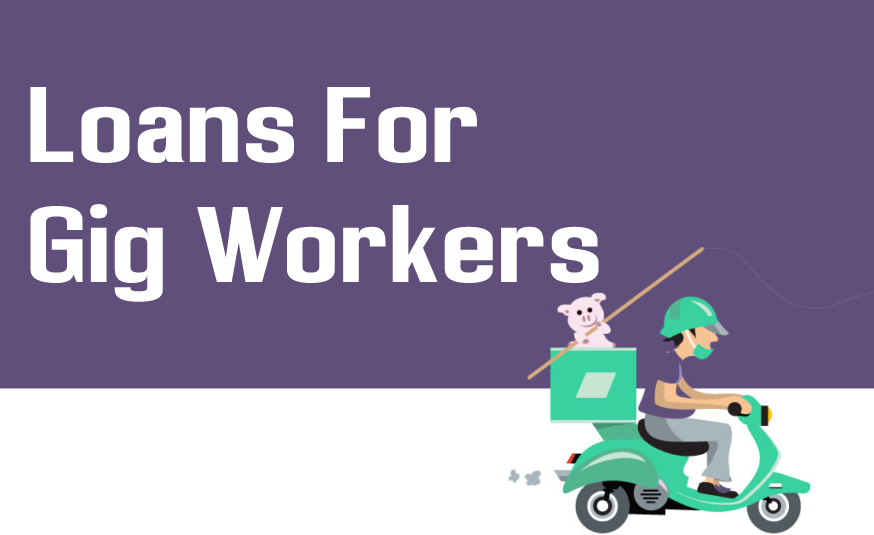Do you work on your own terms, but need a little more financial stability? If so, you may be a gig worker. A gig worker is someone who works as an independent contractor, often in the gig economy. This means that you may have irregular or short-term jobs.
Because gig work is so unpredictable, it can be hard to qualify for a traditional loan. However, there are a few loans designed specifically for gig workers. These loans can help you cover the costs of things like rent, groceries, and transportation. Plus, they can help you build a buffer in case your gig work ends prematurely.
If you’re interested in getting a loan for gig work, be sure to talk to a financial
What are loans for gig workers?
Lenders who offer loans to gig workers typically do so in order to help them cover the costs of living while they are working as a freelancer. This can include things like rent, groceries, and utilities. Loans can also be used to help cover the costs of training or certification or to help pay for unexpected expenses that crop up while working as a freelancer.
There are a few things to keep in mind when applying for a loan for a gig worker. First, it’s important to be aware of the interest rates that are available. Second, it’s important to be aware of the repayment terms. Most loans available to gig workers are fixed-rate loans, which means that the interest rate remains the same throughout the loan term. However, there are some loans available that are adjustable-rate loans.
This means that the interest rate can change over the life of the loan, which can be beneficial if the expected rate of inflation changes. Third, it’s important to be aware of the loan repayment options that are available.
Most loans offered to gig workers are dischargeable, which means that the borrower can usually rid themselves of the loan in bankruptcy. However, there are some loans that are non-dischargeable, which means that the borrower will have to pay the entire loan off in order to be free of it.
How do loans for gig workers work?
A loan for a gig worker is really just a short-term loan that is given to them in order to help them cover their living expenses while they are working on a project or project-based job. This loan can be given in the form of a credit card, a personal loan, or even a loan through a bank.
The main difference between a loan for a gig worker and a loan for a traditional employee is that a loan for a gig worker is usually given in smaller increments rather than one large loan. This means that the loan can be repaid much more quickly, which is great for those who are looking to maintain a consistent income.
Additionally, the interest on a loan for a gig worker is usually much lower than the interest on a loan for a traditional employee. This is because a loan for a gig worker is considered to be a “short-term” loan, while a loan for a traditional employee is considered to be a “long-term” loan.
All in all, loans for gig workers are great ways to help people cover their living expenses while they are working on a project or project-based job.
Who is eligible for loans for gig workers?
There are a few things to keep in mind when it comes to loans for gig workers. First and foremost, you’ll need to be eligible for a loan. This means you’ll need a good credit score and enough income to cover the costs of the loan.
Next, you’ll need to find a lender that’s willing to work with you. Some lenders will only work with established businesses, so be sure to check first. Finally, make sure you understand the terms and conditions of the loan before you take it out.
Also Read: How to Get NAC Loans?
What are the benefits of loans for gig workers?
There are many benefits of loans for gig workers. One benefit is that loans can help gig workers cover unexpected costs in their job. For example, if a gig worker is hired to do a project for a client but is forced to work overtime or on a weekend, a loan could help cover the extra expenses.
Lending also provides some security for gig workers. If a gig worker is unable to repay a loan, the lender can seize the worker’s assets to cover the debt. This security is important for people who may be unsure about their future in the gig economy.
Lending can also help gig workers build a credit history. This is especially important for people who are looking to start their own business in the future.
Lending also allows gig workers to save money. For example, if a gig worker is paid per task rather than per hour, a loan could help them build a budget and avoid costly mistakes.
Overall, loans for gig workers provide many benefits, including security, savings, and creditability.
Are there any disadvantages of loans for gig workers?
There are a few potential disadvantages to loans for gig workers, but they can usually be overcome with careful planning and execution.
One potential disadvantage to loans for gig workers is that they may not have steady employment. This means that the repayments on a loan for a gig worker may be sporadic, which could lead to difficulties in meeting repayments. In addition, if a gig worker is unable to find new work, they may be unable to repay the loan in a timely manner.
Another potential disadvantage to loans for gig workers is that they may not have the same credit history as traditional borrowers. This means that a loan for a gig worker may be more expensive, and may require a higher credit score than normal.
However, these disadvantages can usually be overcome by taking the necessary steps to ensure that the loan is repaid on time, and by ensuring that the loan is taken out from a reputable source. By planning carefully, and by seeking the help of a financial advisor, a gig worker can ensure that their loan is a success.
How can I apply for loans for gig workers?
There are a few ways to apply for loans for gig workers. One way is to find a financial institution that offers loans specifically for gig workers. Another way is to look for online loan calculators that will help you figure out your eligibility for a loan. Finally, you can also look for loan providers that specifically cater to gig workers.
Also Read: How to Get A Future Home Loan?
Conclusion
There are a few options for loans for gig workers. One option is to look into loans from credit unions or banks. These loans typically have lower interest rates, and many offer flexible repayment options. Another option is to look into online loans. These loans are typically quicker to get but have higher interest rates. Finally, some gig workers may want to consider taking out a loan from a private lender. These loans can be harder to get but may have lower interest rates.


